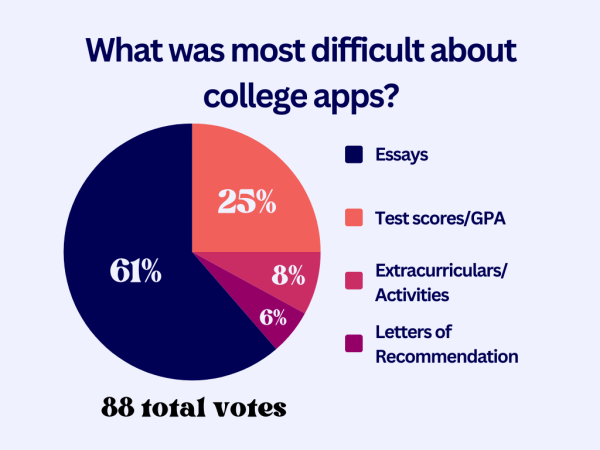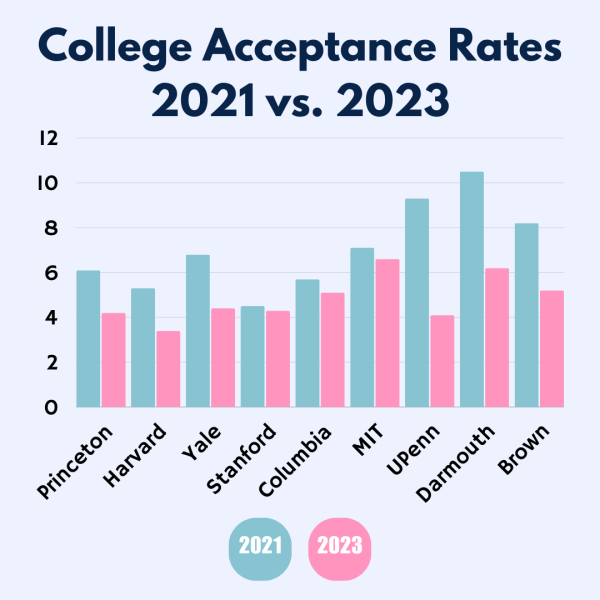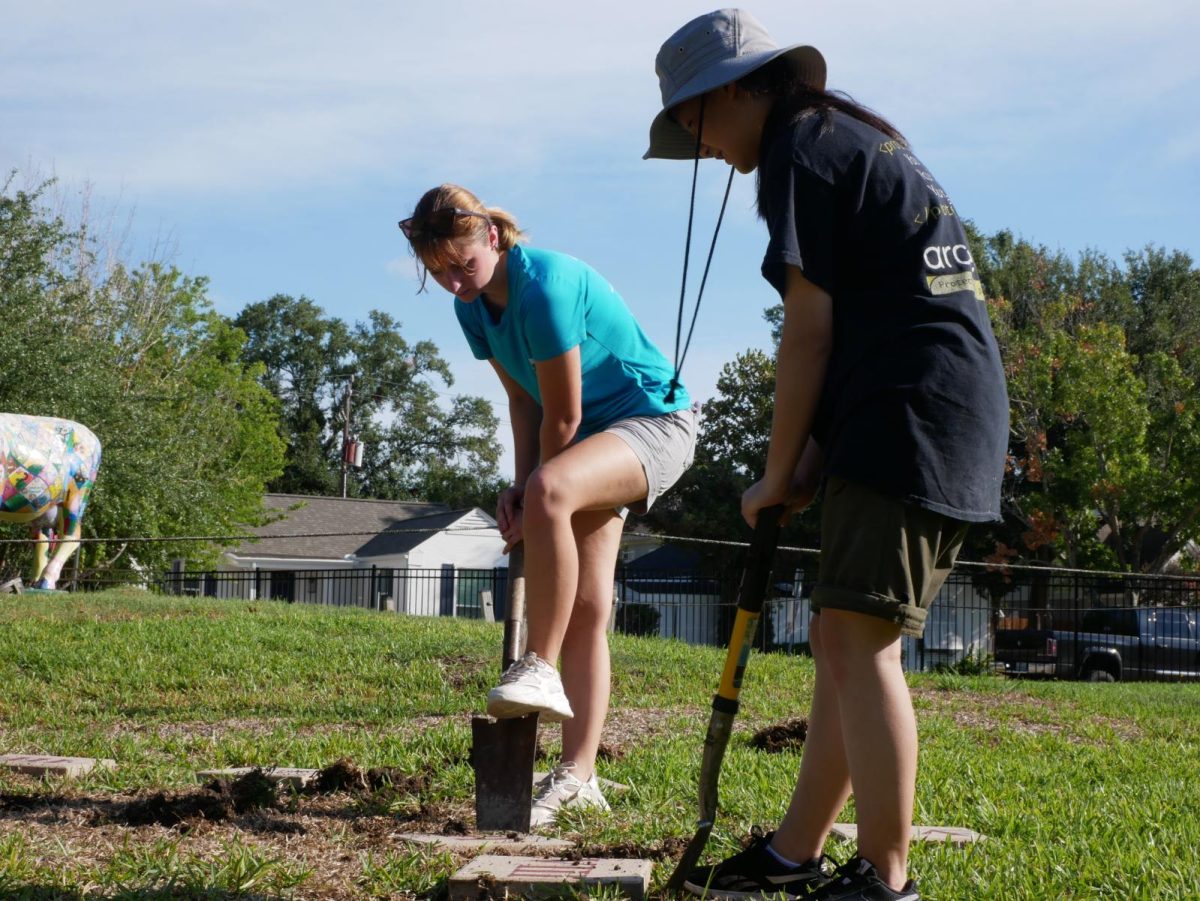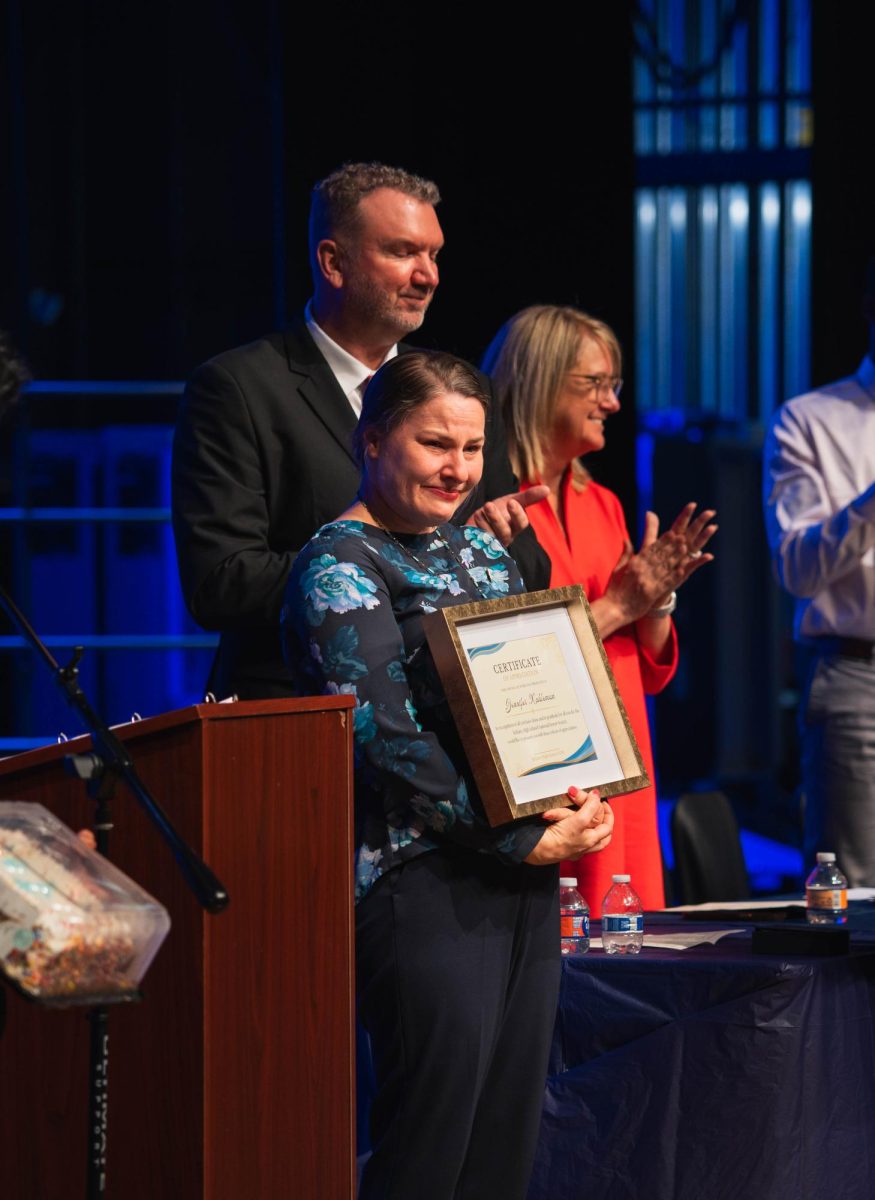Seniors are approaching the rigorous journey to achieve a lifelong goal: college.
TikToks or Instagram reels pop up on feeds of immersed students, with titles along the lines of “How I Got Into The Ivy League,” or YouTube videos load onto the recommended feed that display “College Decision Reactions” or “Stats That Got Me Into The Ivy.”
Restless hours of work leading up to a simple response lying in their inbox ranging from “Congratulations, you have been accepted!” all the way to “We regret to inform you…”
With the college application season coming to an end, students begin to wrestle for one of the limited spots at universities and anticipate their decision of a lifetime.
And the essay is your key to getting into that college, according to College Career Military Readiness (CCMR) Specialist Samaya Allen.
“They see this application and your name with other information you have on this application, but they still don’t know who you are until they read the essay,” Allen said, who works with two other CCMR Specialists, Jelicia Hunt and Candis Quinn.
Allen assists students with their applications to find out their goals, ideal dreams or interests based on their plans after high school. The CCMR board looks at student performance and other factors, such as if a student would like to stay in-state or go out-of-state.
“Based on [the students’] interests, we find the perfect college fit for the student–not the perfect major because there’s no such thing as that, and there’s no such thing as the ‘perfect college,’” Allen said. “But trying your best to find a college where you feel that the student will be comfortable in and finding the major where you think you’ll be successful or the student dreams to go into.”
Over the three years Allen has been in the college and career field, she has observed the constantly changing trends within the admission process. She and said the essay defines who a student is as an individual, enabling the college to get to know specifically who they are and their authenticity.
Allen has also noticed some circumstances where numbers might not be everything.
“I’ve seen it randomly,” Allen said. “Some colleges, for instance the University of Houston, have specific needs you need to meet in order to get admitted into your major,” Allen said. “However, I’ve seen it where [students] are below those necessary admission requirements, but because they have such a great essay telling their story of their situation, they still get admitted into that major.”
Rather than relying on numeric data, colleges are looking to understand an all-encompassing identity of a student, according to Allen.
“Now, they have a lot more restrictions when applying for colleges,” Allen said. “So instead of just looking at test scores or rank, most schools are going that holistic route where they want to get to know if you’re the best fit for their school.”

Students can become afraid to commit to this long-term goal. However, Allen thinks that even if students don’t get accepted into their dream school, there are still other opportunities and means of possibility through transferring.
“Sometimes, you’re just going to have to be confident with what you do have, submit and then make a decision from there,” Allen said.
Allen also said it’s key to communicate with the school and its admission counselors. Nevertheless, with various special cases, the admission procedure can become ambiguous and questionable.
“I feel like the college application process is getting more vague and unclear,” Allen said. “Like, ‘What is it that the school really wants from me?’”
With such vague requirements, senior Vivian Jenman said that everything she’s done up to this point is to get into college.
Jenman is a Canadian citizen, but because she was not born there, she must live in Canada for a year before turning 25 to keep her citizenship. This law influenced her decision to exclusively apply to go to college in Canada.
“I was always planning to go to Canadian colleges because it was expected of me to do so,” Jenman said.
As the deadline approaches, Jenman shakes the burden of worrying about submitting applications off her shoulders.
“I’m feeling really good about being done with [the applications] because it’s not that much work,–but it’s just really stressful to have to go through the process because you’re just so worried about everything that you have to do,” Jenman said.
As an active student, Jenman said that everything she’s done up to this point has led to college, such as taking AP classes, joining Boy Scouts, gaining leadership positions in clubs, and joining the National Honor Society. Throughout her high school years, Jenman surrounded herself with friends who were just as or even more hard-working and disciplined as her.
“Having them around me, it used to stress me out and make me worried, but I’ve kind of accepted my position in my friend group as not the best at school,” Jenman said. “I’m okay with that and even though I’m not as good as them, I’m still in a higher percentile overall.”
More resources that are available online have significantly altered the admission process and the average rankings within applicant pools.
“We’re in the age of technology and people are becoming a lot better at getting good grades, whether they’re using technology or just have more access to information around us,” Jenman said.
Jenman said these are some of the factors that contribute to the high competition in college admissions.
“Because everyone is so much better, you can’t just accept all these good people,” Jenman said.
Jenman is passionate about video design and editing. But instead of attending a college that could get her a degree, she could take a simpler and more efficient route, such as going to a trade school to learn the skills.
“I think [college applications] are stupid,” Jenman said. “But with how college is, and how high school is, you’re just expected to go, so while I don’t like it, I’m in this environment where I don’t really have a choice.”

College applications look different for everyone. For senior Sara Shen, any form of competition and pressure surrounding college applications depends on the people you circle yourself with.
“If you’re around people who are always talking about college, extracurriculars, grades, and nothing else, it’ll get pretty toxic, and that attitude will unwillingly rub off on you,” Shen said. “Everyone has their own priorities, and theirs might be college above all–which is totally okay and their choice–but it is also your choice whether or not to be around them and absorb that.”
Shen also highlighted that one challenge of applications was the immense workload that had to be completed for the application process.
“You think it’s just the writing, but then there’s a lot of logistical things that I didn’t really realize had to be done,” Shen said. “It was just unexpectedly time-consuming.”
With high school gradually coming to an end for seniors, a new transition into dreams and aspirations awaits.
These college applications, significantly influencing the future journeys of students, have left seniors feeling anxious, pressured and hopeful about the next four years of their lives. With acceptance rates substantially decreasing each year, competition has still been at a record high.
Students now have better access to application portals, causing the applicant pool to inflate, and according to Common App’s research findings, there was a 21% increase in first-year member applications (around 70,000 more applicants) from the 2019-20 season to the 2022-23 season.March 2023. Additionally, as more than 90% of colleges have established a test-optional policy due to pandemic-related concerns, 31% fewer applicants have included their test scores with their application since the 2019-20 season.
Despite these changes, the only thing preventing students’ success is their ability to try.
“Do not be scared to push the submit button because the worst thing you can do to yourself is stop your own success with your fear,” Allen said.










